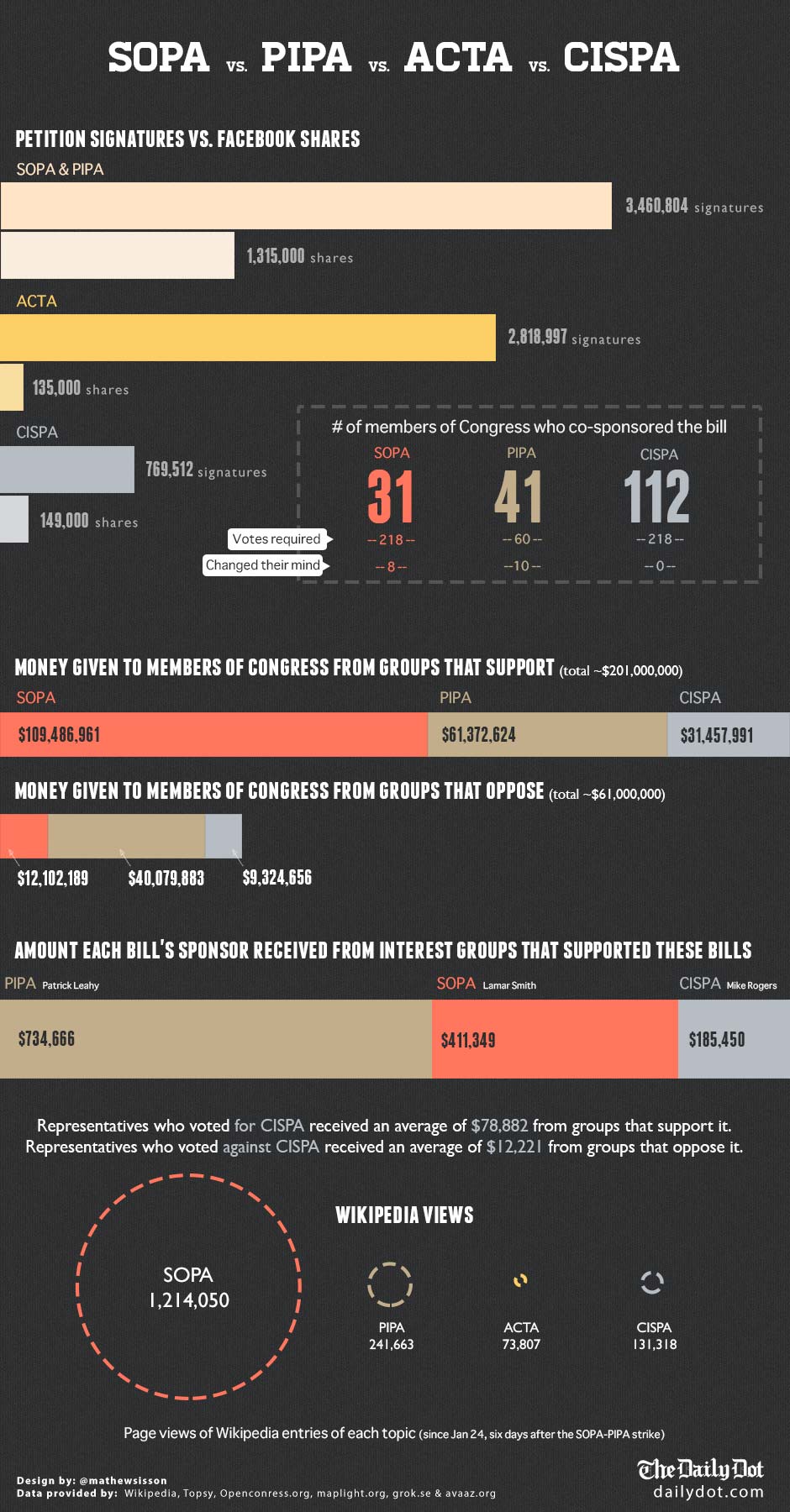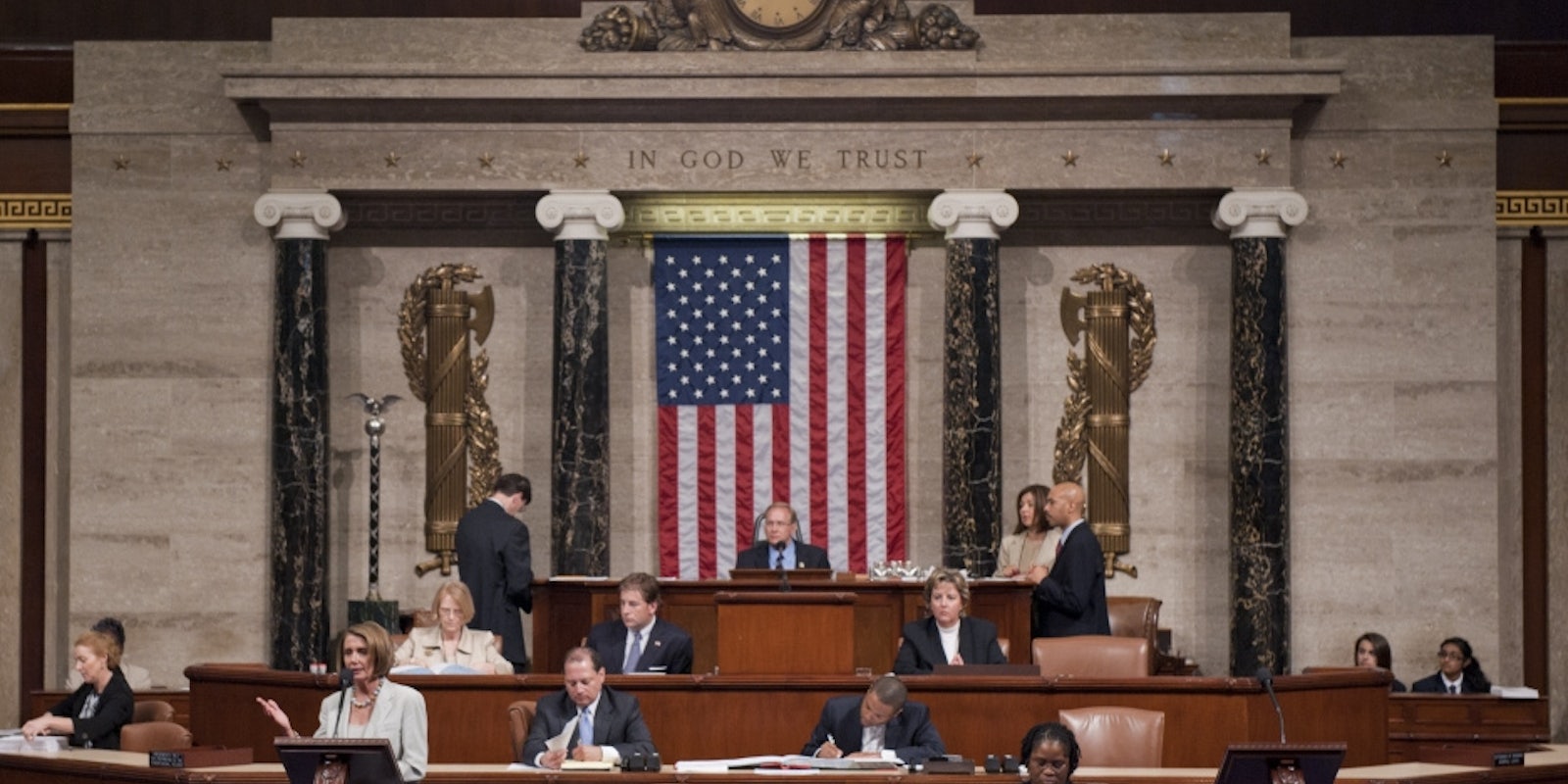The past 12 months have seen an unprecedented flurry of Internet-related legislation and furious opposition—so much so, it’s difficult to keep a sense of perspective. Here’s a quick recap of the four most contested pieces of legislation that have riled up Internet users.
SOPA
What it is: The Stop Online Piracy Act, a.k.a. SOPA, is a copyright-enforcement bill introduced to the House of Representatives. It was heavily associated with the Hollywood lobbying group the Motion Picture Association of America.
What’s the problem: Under it, courts could instruct Internet service providers to block users
from visiting websites accused of even linking to copyrighted materials.
PIPA
What it is: The Protect IP Act, a.k.a. PIPA, was introduced in the Senate and was seen largely as a sister bill to SOPA.
What’s the problem: Under PIPA, any site that facilitates copyright infringement was subject to domain name system blocking—meaning that they’d appear in users’ browsers to simply not exist.
ACTA
What it is: The Anti-Counterfeiting Trade Agreement, aka ACTA, isn’t a bill—it’s a trade agreement between a number of countries to work together to enforce copyright online. Theoretically, ACTA is a means for countries around the world to agree on the same standards for copyright enforcement. Though originally introduced only to address physical counterfeits, it’s since been reworded to include any online copyright infringement, too. The U.S. signed it without much fanfare before the SOPA and PIPA protests, but the European Union hasn’t voted on it yet. It’s currently hotly debated in Europe.
What’s the problem: According to some interpretations, ACTA could give ISPs around the world the right to scan users’ Internet usage for potential copyright infringement.
CISPA
What it is: The Cyber Intelligence Sharing Protection Act, aka CISPA, is a security bill designed to help federal agencies defend American property from foreign hackers. Under CISPA, any company can immediately share otherwise private user information with federal agencies if it could help combat one of four cyber threats. It passed a House vote Thursday and is currently awaiting vote on the Senate floor.
What’s the problem: Critics say the government shouldn’t ever have such easy access to private user data.
Photo via Leader Nancy Pelosi

